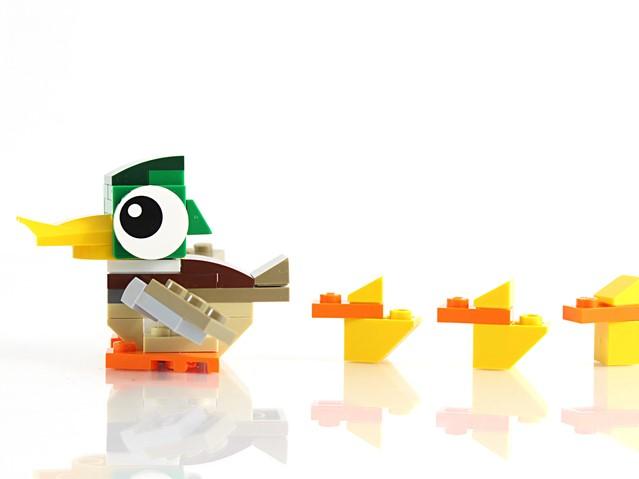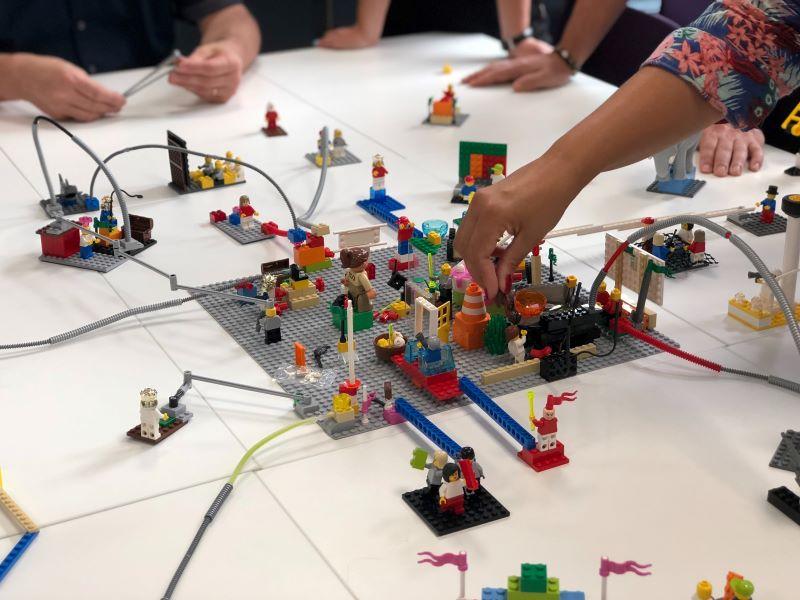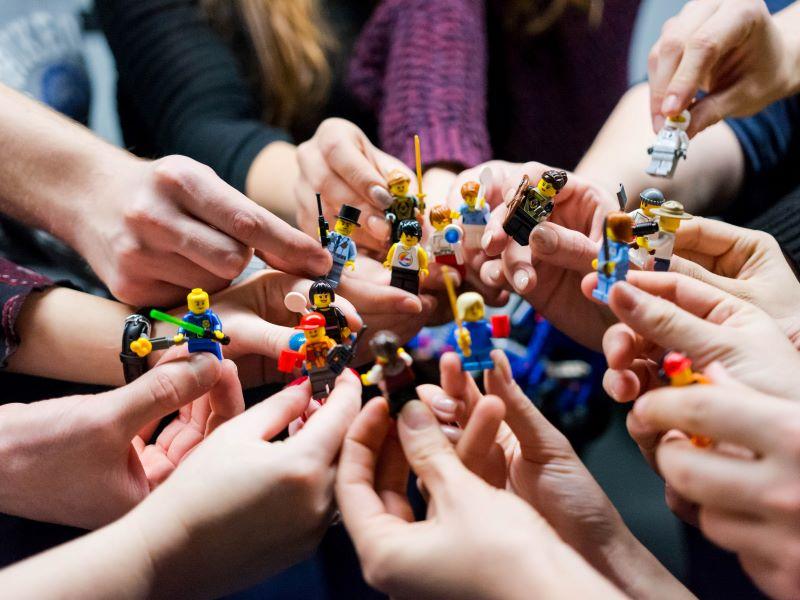
Why getting a PhD is like building a Lego duck
Ben Marder provides a fun exercise that can impart important wisdom to help lessen PhD students’ anxiety over their progress
You may also like
Popular resources
Doing a PhD is completely different from undertaking a taught undergraduate or a master’s degree – but it is somewhat similar to building a Lego duck. Bear with me. I’m sure we can all agree that a PhD is the ultimate academic adventure: a four-year (approximately) trek with a couple of hardy guides (advisers) into the deep forest of a particular subject area, from which you emerge victorious as an expert in that field.
Although the thought of such a voyage is exciting, it’s also scary. Beyond general research angst (ie, realising that a paper from 1992 stole your idea and unruly data), my experience has shown me that PhD students suffer from a very specific form of worry – and that this anxiety stems from uncertainty about how well they are doing.
In undergraduate and master’s degrees, regular assessment, marked out of 100 with defined grade boundaries, clearly provides students with a yardstick of their progress and their comparative position against their peers. Because of the very nature of a PhD journey, such concrete markers are few and far between, and students may go long periods without any more assurance about their progress than their adviser offering a seemingly lacklustre “it seems all right” or a one-line email espousing “looks good”.
- Teaching with Lego: using plastic bricks to encourage play and interaction in class
- ECRs can still evidence leadership and management skills on their CVs
- Walk the walk to benefit your academic research
Such uncertainty over their progress is even more worrying when you consider who PhD candidates are: very high-achieving students who have got top grades in their prior degrees and thus are used to the regular buzz and security of scoring well on assessments. My own experience as a PhD student and now as a PhD educator has shown me that PhD researchers will grasp at any information they can to obtain assurance about their progress. Without anything better, this largely manifests in them comparing themselves with their peers (ie, other students who started at roughly the same time), which often leaves them feeling worse. However, I have found that teaching students to compare their PhD journey to building a Lego duck has the opposite effect.
Inspired by an innovation workshop I attended years ago, the first task that new PhD researchers at the University of Edinburgh Business School must undertake is to build a duck out of six pieces of Lego in exactly one minute. Students have an identical set of Lego bricks, are told to work individually and are given absolutely no indication of how the duck should look. Without any explanation as to why they have been instructed to build a duck, the somewhat bewildered class frantically engage in speedy duck construction.
When the minute is up, I ask all students to hold their ducks in the air for others to see. Unsurprisingly, a flock of completely different-looking ducks emerges, ranging from those where the duck resemblance is obvious to others where it is more abstract. After they have had time to check out each other’s ducks, they are instructed to dismantle their duck before being given another minute to build one again. The second round of construction yields a different but still-diverse group of ducks. With the class looking confused, this is when I impart the great wisdom of why building a Lego duck is like doing a PhD, and why this is important for them:
No PhDs are the same
PhDs by their very nature are original pieces of work constructed using different theories and methodologies under the supervision of different advisers. Although there are some general structures that students follow (monograph, thesis by paper), there is no exact set of instructions to adhere to. As such, like the Lego ducks, no PhD is the same. Consequently, there is no prescribed right and wrong way to build a duck; nor, indeed, to complete a PhD.
PhDs are inspired by others and evolve over time
Throughout the journey of a PhD, researchers’ work will be scrutinised not only by themselves but by others (peers, advisers, the wider academic community). Feedback will be taken on board and likely play a crucial role in shaping the thesis as PhDs evolve over time, and will be inspired by the opinions and work of colleagues. This is also similar to the duck construction, as students’ second effort was different from their first after being inspired by their classmates’ ducks.
PhDs are fun and creative
Although, similar to building a duck, the PhD journey will be frustrating at times given the lack of a set path, at their heart PhDs are creative and enjoyable endeavours. When else would someone ever get four years to essentially deep dive into a phenomenon they are passionate about and have the freedom to create new knowledge in the area?
It only takes a minute
Of course, PhDs take longer than the minute it takes to build a duck, but any academic will attest that coming up with great ideas that change the path of your research might not. Eureka moments can occur quickly through piecing together sometimes seemingly random thoughts, perhaps while in the shower or some such.
So why is knowing the similarities between Lego ducks and PhDs important? Given the lack of objective markers for researchers to gauge their progress and the tendency to compare themselves to others, which generally does more harm than good, there is a great deal of solace in the knowledge that PhDs are a bit like Lego ducks. Specifically, that they take all different shapes and sizes, they will evolve over time at their own pace, they will be inspired by others as they go, and overall they are fun and creative.
In other words, it’s good for candidates to know that there’s no point fretting that another student has written two-thirds of their methods chapter or started collecting data already – you are not necessarily behind but just on your own unique PhD research journey. At the end of that first session, I ask students to keep their ducks and put them on their desk to remind them of the above wisdom.
Ben Marder is senior lecturer in marketing and director of collaborative PhD programmes at the University of Edinburgh Business School.
If you would like advice and insight from academics and university staff delivered direct to your inbox each week, sign up for the Campus newsletter.





Comments (0)
or in order to add a comment